CALL US TODAY TO CHAT ABOUT HOW WE MIGHT HELP
- Product
- Solution
Based on Industry Sector
Based on Role
Based on current challenges
- Article
- Contact Us
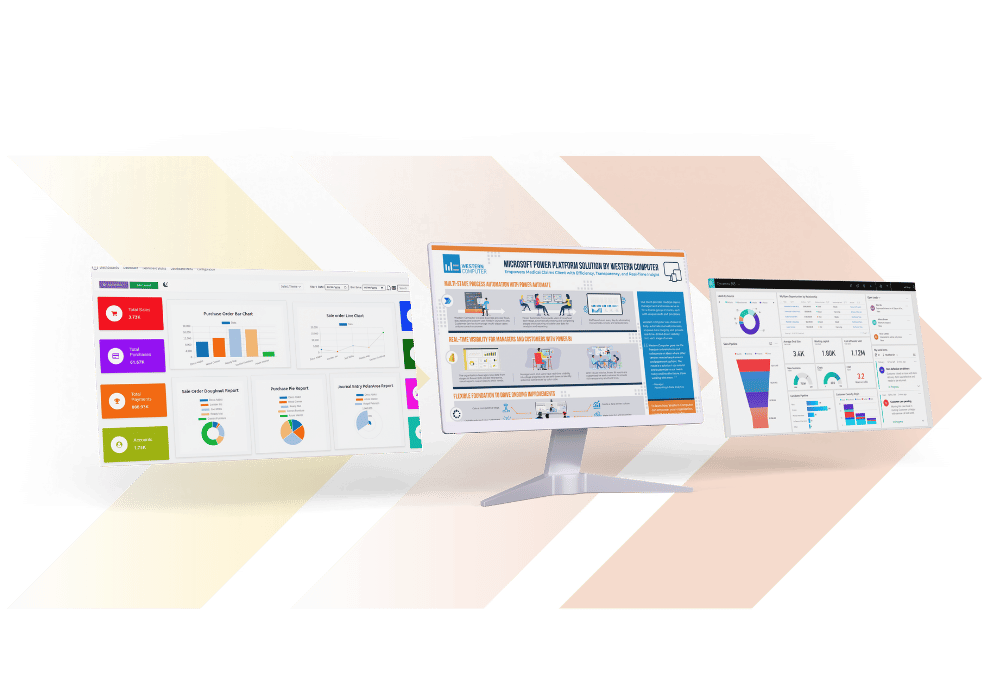

navigate your next
Driving Transformation, Delivering Growth
Digital Transformation
Optimize your business performance through the right ERP, BPR, and Data Analytics solutions
Effective digital transformation begins with a solid ERP (Enterprise Resource Planning) foundation — a system that unifies every business process within one integrated platform. With the support of Business Process Reengineering (BPR) and Data Analytics, organizations can achieve higher efficiency and make accurate, data-driven decisions that drive sustainable growth.
As Independent ERP Consultant in Indonesia which Vendor-agnostic , KANO helps you find and implement the best-fit solution for your unique business requirements.
Enterprise Resource Planning (ERP)
An ERP system integrates all company data and business processes into a single unified platform. No more duplicated data or manual processes that slow down operations. Through automation, businesses can enhance accuracy, efficiency, and operational speed — enabling teams to focus on what truly drives growth.
As an independent ERP consultant , KANO helps analyze your business model and implement the most suitable ERP solution for your company’s needs.

Business Process Reengineering (BPR)
Implementing an ERP system effectively often requires redesigning business processes to significantly improve productivity, efficiency, and quality across the entire organization. This transformation is known as Business Process Reengineering (BPR).
As an experienced ERP consultant in Indonesia, KANO ensures every BPR implementation runs effectively, aligns with your company’s strategy, and drives sustainable business growth.

Data Analytics
Companies that manage large volumes of data (Big Data) need a Data Analytics system to accelerate analysis and decision-making. With accurate insights, management can better understand performance, trends, and business opportunities.
This system can be integrated with ERP, allowing all company data to be analyzed in a unified way. KANO ensures the implementation runs effectively and supports your strategic business direction.

product we deliver
Odoo
Odoo provides flexible modules, Sales, Purchase, Accounting, Inventory, Manufacturing, HR, CRM, Projects, and more, all of which can be tailored to your business needs. KANO is: Odoo Consultants in Indonesia with proven experience implementing Odoo across companies in Indonesia.
Key Points of Odoo:
Modular & Integrated: Each business function has its own module, and all modules are interconnected.
Open-Source & Flexible: Can be developed and customized to each company’s unique needs, with additional modules available via the Odoo Apps marketplace.
Modern Interface: User-friendly, intuitive, and web-based. Can be installed on your own servers (on-premises) or accessed via the cloud (Odoo.sh/SaaS).
High Scalability: Suitable for small, mid-sized, and large enterprises.
More Cost-Efficient: Compared to many other commercial ERPs.

Microsoft Dynamics 365
Microsoft Dynamics 365 is a unified, cloud-based ERP and CRM suite from Microsoft, built to manage core functions, finance, sales, customer service, operations, and more, within a single integrated ecosystem. KANO is Dynamics 365 Consultants in Indonesia with proven experience implementing Microsoft Dynamics 365 across companies in Indonesia.
Microsoft Dynamics 365 Key Points
Modular & Integrated: A suite of modular applications that can be used individually or combined. All components are interconnected and natively integrate with other Microsoft tools such as Microsoft 365 (Word, Excel, Outlook) and Power Platform (Power BI, Power Apps, Power Automate).
Cloud-Based (with Hybrid/On-Premises Options): Designed to run on Microsoft Azure, with select modules also available on-premises.
Artificial Intelligence & Analytics: Integrated with AI to deliver predictive insights.
High Scalability: Suitable for small, mid-sized, and large enterprises.
Security: Enterprise-grade security with global certifications (GDPR, ISO, etc.).
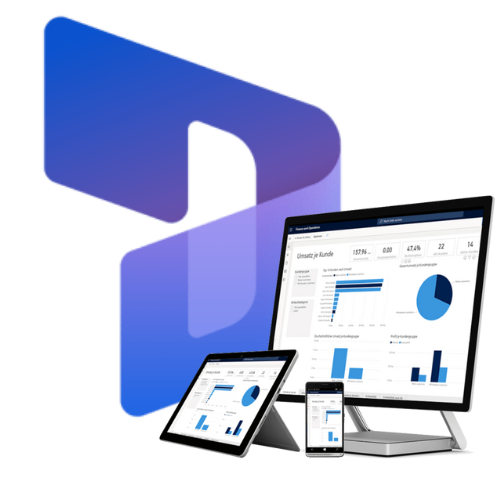
Epicor Kinetic
Epicor Kinetic adalah sistem ERP yang dikembangkan oleh Epicor Software Corporation, dirancang khusus untuk perusahaan manufaktur dan distribusi. Epicor Kinetic merupakan generasi terbaru dari Epicor ERP dan hadir dengan antarmuka yang lebih modern, berbasis web (cloud-native), serta pengalaman pengguna yang lebih intuitif. KANO adalah Epicor consultant in Indonesia with proven experience delivering Epicor Kinetic implementations.
Key Poins Epicor Kinetic :
Modern & Intuitive UX: Responsive, browser-based interface.
Cloud-First (Flexible): Epicor Kinetic is built for the cloud (SaaS) while still supporting on-premises deployments for companies that require them.
Low-Code/No-Code Tools: Provides business users with tools to build and modify applications/services with little to no coding.
Integration & Ecosystem: Supports open APIs and integrations with other systems (e.g., MES, e-commerce, and more).
Security: Built with a strong focus on security, role-based access control, and audit trails.
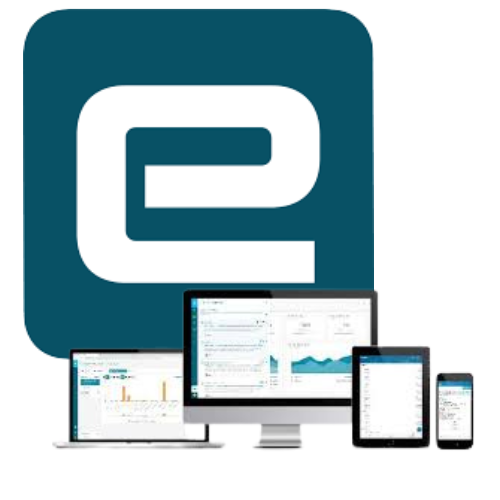
Microsoft Power Platform
A suite of tools from Microsoft that enables users, both technical and non-technical, to build applications, automate business processes, analyze data, and create AI agents. without the need for complex coding.
Consists of four main products:
Power BI – for data analysis and visualization. Used to create dashboards, interactive reports, and gain insights from various data sources.
Power Apps – for build custom business applications. Suitable for building mobile or web applications connected to a company’s internal data.
Power Automate – for automate workflows and business processes..
Copilot Studio – an evolution of Power Virtual Agents, now enhanced with generative AI capabilities.

Microsoft Fabric
Microsoft Fabric is data platform end-to-end built on Microsoft OneLake (centralized data storage), and designed to replace the complexity of managing multiple separate data tools.
Main Components of Microsoft Fabric:
Data Factory
→ For data integration and transformation (ETL/ELT), similar to Azure Data Factory.Synapse Data Engineering
→ For large-scale data processing using Spark.Synapse Data Warehousing
→ For storing and managing structured data, similar to a SQL Data Warehouse.Synapse Real-Time Analytics
→ For real-time analysis of streaming and semi-structured data.Data Science
→ Supports machine learning experiments and AI model development.
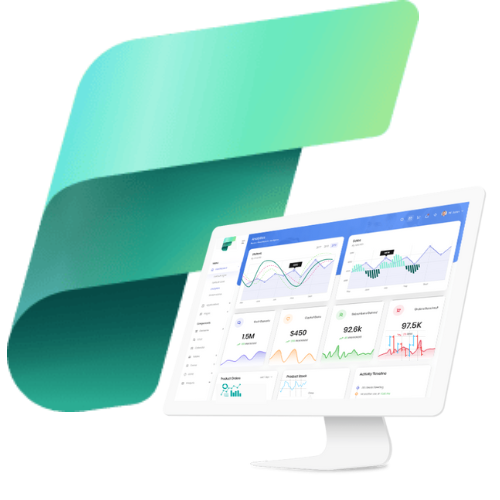
KingswaySoft
KingswaySoft is often used by data developers and analysts to simplify integration processes without complex coding.
Key Poins KingswaySoft :
SSIS Components for Dynamics 365 & Dataverse
Supports full CRUD operations (create, update, upsert, delete, merge), querying via FetchXML/AuditLog, and easy mapping for OptionSets.Multi-Platform Integration
Connectors available for Dynamics CE/CRM, Finance & Operations, Business Central, SharePoint, Salesforce, Oracle CRM, and others.Specifically designed for Dynamics 365 with high performance and capabilities full-ETL .
No-code/low-code: users can build pipelines without programming.
Scalability , suitable for large-scale migrations and continuous data synchronization.
Data quality components help maintain data integrity.
Supports deployment on-premise and cloud
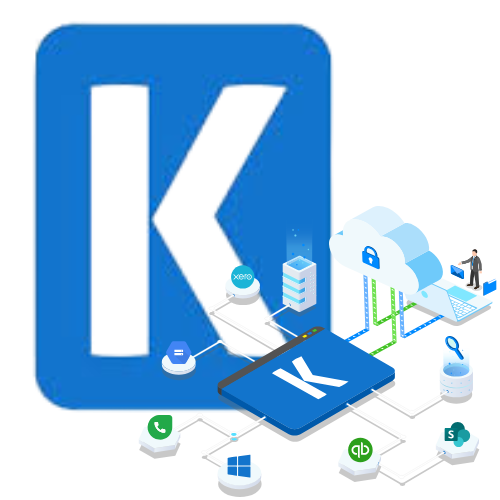
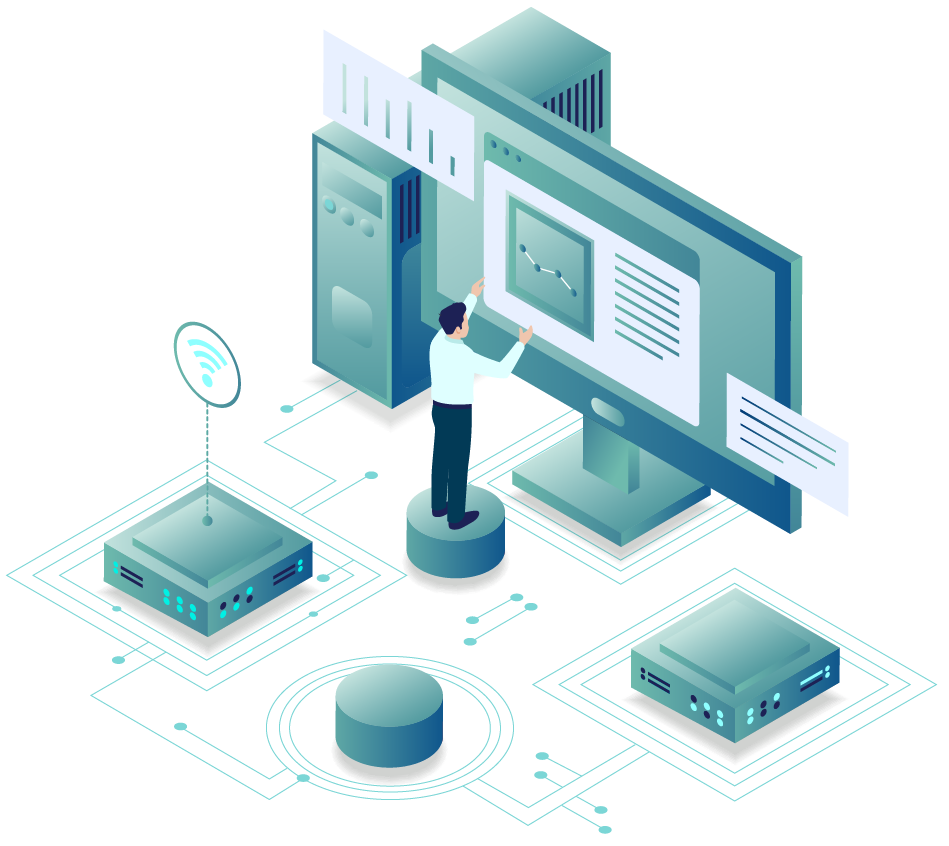
Navigating Complex Enterprise Technology with a Focus on ROI
Feeling overwhelmed by the abundance of technology terms? Unsure whether to buy or build your own system? What makes it even more complicated is the overlap among many technology solutions, while vendors tend to steer architectures in their favor to sell more of their products. Want to know why architecture is far more important than choosing a specific enterprise software?
KANO
What makes KANO different?
Looking for a partner who truly understands both your business and technology? KANO brings a comprehensive approach — reviewing your systems, contracts, architecture, and the underlying legal aspects.
More than just a consultant, KANO takes an active role in implementation as a single point of coordination, covering solution design, system assessment, change management, and end-user training.
Unlike 80% of independent ERP consultants who believe they can rescue ERP implementations merely by check list, we do not share this view. For us, successful ERP implementation requires careful analysis of transactions and data models aligned with the business model.
ERP systems are never a one-size-fits-all solution — nor will they ever be the sole solution. Most companies require 5 to 10 other applications to be used alongside their ERP. Unlike many other ERP consultants, we possess expertise across multiple systems, including HCM, CRM, E-commerce, WMS, and TMS.
Unless you have hands-on experience implementing most of the ERP systems available in the market, they will all seem quite similar. However, it’s these subtle differences that make ERP implementation highly challenging. KANO can simplify this process: We have hands-on experience implementing most of the leading ERP systems.
Building a vendor-neutral architecture requires mapping data flows between different entities, departments, processes, and systems. This also requires identifying the primary data sources (source of truth) for each shared dataset. And much more. Only a few consultants, such as KANO who possess deep expertise in building enterprise architectures capable of scaling effectively.
About 80% of business processes are relatively similar across various industries. However, it is the remaining 20% that determines the success or failure of digital transformation initiatives. This 20% consists of processes that are unique to each micro-sector, and can cost millions of dollars if customized without prior evaluation. by experts like KANO.
Stuck with an outdated business model and unsure how to carry out digital transformation? With its unique methodology, KANO can assist whether you need support for DTC, omnichannel experience, Industry 4.0, or other emerging trends that may impact your organization's performance.
"ERP without powerful business analytics is like a ship without a compass; we provide direction, not just tools."
What we do
We provide comprehensive and diverse business solutions
Problems We Address for Businesses ERP System Implementation
Growing companies or those modernizing existing systems may be considering adopting a new ERP. Other drivers for ERP implementation include the need to consolidate scattered system footprints or as a result of company acquisitions that lead to data silos. These companies might go through a selection process before choosing the right ERP system or proceed directly to the implementation phase, depending on the complexity of the project.

Executing Digital Transformation for Their Business
Companies at a growth inflection point require a comprehensive transformation of their operations to reach the next milestone in their business journey. These companies may consolidate their existing system footprints and implement new business models such as DTC (Direct-to-Consumer), BOPIS (Buy Online, Pick Up In Store), or ROPIS (Reserve Online, Pick Up In Store). Alternatively, they might rebuild their digital capabilities to enhance customer experience.

Problems We Solve for Companies Facing Supply Chain Challenges
Why do companies face supply chain challenges?
These challenges may be caused by suboptimal planning maturity, data quality issues, or overly complex (over-engineered) systems. Other challenges include demand forecasting and supply chain planning. Additionally, problems can arise in inventory management and goods allocation. Finally, challenges may stem from a lack of visibility across the supply chain network and inefficient material movement processes.

Looking for Business and Technology Consulting Services?
Companies struggling with their business processes and uncertain about what changes are needed—whether in processes or systems—require assistance in defining their challenges and vision before they are ready to implement any changes.
They may need support due to challenges such as:
- confusion in deciding whether to buy off-the-shelf solutions or build in-house.
- difficulty aligning the interests of stakeholders.
- system integration issues post-merger.

OUR METHOD
Our Method
Our methodology begins with an in-depth assessment of your current processes and system architecture. Based on this evaluation, we develop a digital roadmap that outlines the necessary changes in processes, data, and systems to achieve your desired business state. Once the plan and direction are approved by the executive team, we formulate a phased action plan — starting with initiatives that are easiest to implement and deliver the most significant results. These stages may include ERP system selection, new solution implementation, or optimization of existing systems.
Assessment
Reengineering
Keys to Success and Solutions
Fit-Gap Analysis and ROI of Each Solution
Solution Selection and Contract Negotiation
Implementation and Application of Solutions
insight
-
ERP, Fitur Epicor, Fitur Produk
Automate Your Credit Collections with Epicor Cash Collect: Faster Cash-In Without Adding Headcount
More -
ERP, Fitur Epicor, Fitur Produk
Advanced Unit of Measure (UOM) in Epicor Kinetic: Practical Dual UOM and Dimensional Inventory Control for Manufacturing
More -
Epicor, ERP, Manufacture, Technology
Epicor Advanced MES for Epicor Kinetic (Epicor ERP): Real-Time Production Visibility for the Shop Floor
More -
Dynamics 365, ERP, Technology
Field Service Bookings kini terintegrasi dengan Outlook & Teams
More
PT. Kano Andalan Nusantara Otomasi (KANO)
-
Monday to Saturday: 9.00am to 5.00pm
-
Workshop
Jl Margorejo Indah VI Blok B No. 618






